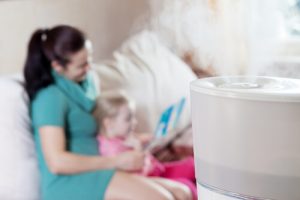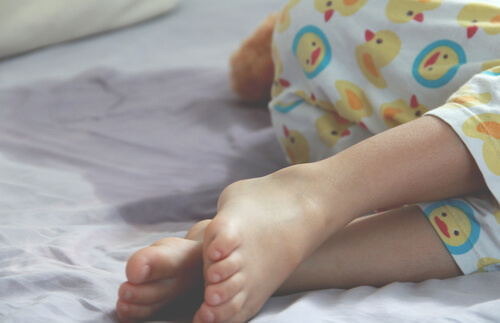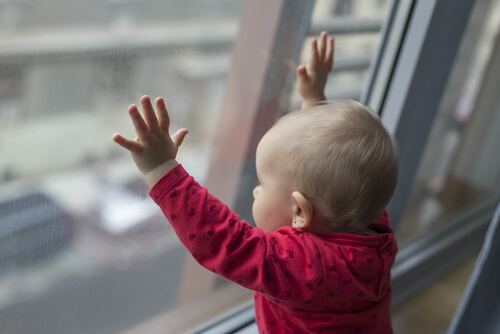Are Humidifiers Useful or Not for Babies?

Are humidifiers something you should buy for your baby? Usually the first thing we think about after having a baby is how to make sure they grow up in a healthy environment.
There are so many tools and gadgets designed for babies today that it can be overwhelming to learn about all of them.
Many parents wonder about finding the best way to take care of their babies.
There are many myths and misconceptions about the use of humidifiers. Many people don’t know whether they’re a good idea or not for babies, and if they’re truly beneficial and effective.
Are humidifiers just another marketing trick? Or are they really something worth getting? We’ll find out below.
What is a humidifier?

First, a humidifier is a device that maintains optimal humidity levels in the air.
The main benefit is that it cleans and renews the environment where it is placed, and allows the air to be kept at a healthy balance. This avoids excessive dryness or dampness, which can lead to various health problems.
The way it works is simple. A humidifier is composed of a tank of water which, through an evaporation process, releases mist that increases humidity. It’s an ideal tool to create a healthy environment for your baby during their first weeks and months of life.
What benefits can humidifiers have for your baby? You could say the magic lies in guaranteeing a good atmosphere.
Choosing a humidifier
When it comes to choosing the best model for your home, keep in mind that there are different types of humidifiers depending on what system they use:
- Hot steam (also called vaporizers). These humidifiers heat the water in the tank to a certain temperature which allows vapor to be gradually released. Because of the way they work, they also warm up the area they are in.
- Cold Steam. These are more advanced. They release vapor, but not by heating water. Instead, they use a more sophisticated technology which uses ultrasounds.
- Ionizers. The most modern and most expensive are those with ionizers, which combat germs suspended in the air, improving air quality.
Common questions: importance and usefulness
A child in the first stages of life hasn’t yet developed all their defenses. That’s why it’s so important to pay attention to their environment.
In winter it’s important to increase humidity because heating in your home dries out the air and infections can occur. However, in summer, high temperatures increase problems with dry skin and respiratory systems.
Often dry nose, rhinitis, and congestion can occur, all of which threaten your baby’s well-being as they rest, as well as the parents’.
This is why a humidifier is important to maintain an optimal balance in the air around your little one.

Key tip: recommended humidity level
The question is what should the humidity level be, and how to achieve it. From a medical perspective, it’s recommended that the air in the home, especially where your child is, be maintained between 30 and 40 degrees Celsius.
It’s important to keep in mind that both excessive dryness and excessive humidity can be a threat to a baby’s normal breathing.
But how can you know that you’re within the ideal parameters? The best way is to have a moisture meter, a tool that is a perfect complement to a humidifier.
There are even some humidifiers that have them built in. This is something to check when purchasing.
It’s also helpful to pay attention to the symptoms your baby presents when the air isn’t ideal:
- Dry skin and mucous
- More severe colds and respiratory infections
- Cracked lips
- Eye redness
Advice for choosing and buying a humidifier
Before buying:
- Compare water tank capacities, tank autonomy, and type. The hot steam type are more economical, but they can be a danger to children unless you take precautions.
- Consider whether they have a built-in moisture meter.
During use:
- Keep humidifiers out of reach of children.
- Clean carefully after use.
In the home:
- Control the humidity settings.
- Always ventilate to keep the air fresh.
Children and families should be in healthy spaces. Many parents lose sleep over this.
To achieve this, there are certain details to keep in mind. The best way to help them develop fully is knowing about each stage of their lives.
This text is provided for informational purposes only and does not replace consultation with a professional. If in doubt, consult your specialist.








